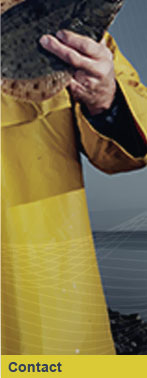Evaluating community fish quota management in Atlantic Canada: Lessons from the Start-Up Years
Lucia M. Fanning
Dalhousie University, Marine Affairs Program
lfanning@dal.ca
Abstract In Atlantic Canada, as elsewhere, coastal communities and governments have been experimenting with the co-management model to achieve the sustainable use of coastal and marine resources. One example, introduced as a three-year trial in 1997, was community quota management by the inshore, fixed gear ground fish sector in the Scotia Fundy region. Using structured and unstructured interviewing techniques, this paper examines the rationale behind the pursuit of community quota management and the organizational, legal and regulatory, socio-economic, and science-based issues that confronted the newly-formed community management institutions. By focusing on the early stages of community quota management, the analysis assesses the importance of these start-up issues and provides lessons to others contemplating community-based methods for fisheries management within the Canadian context and elsewhere.

Centre for Maritime Research
Plantage Muidergracht 14-16
NL-1018 TV Amsterdam
Phone: +31 20 5254185
Fax: +31 20 5254051
Contact Form
